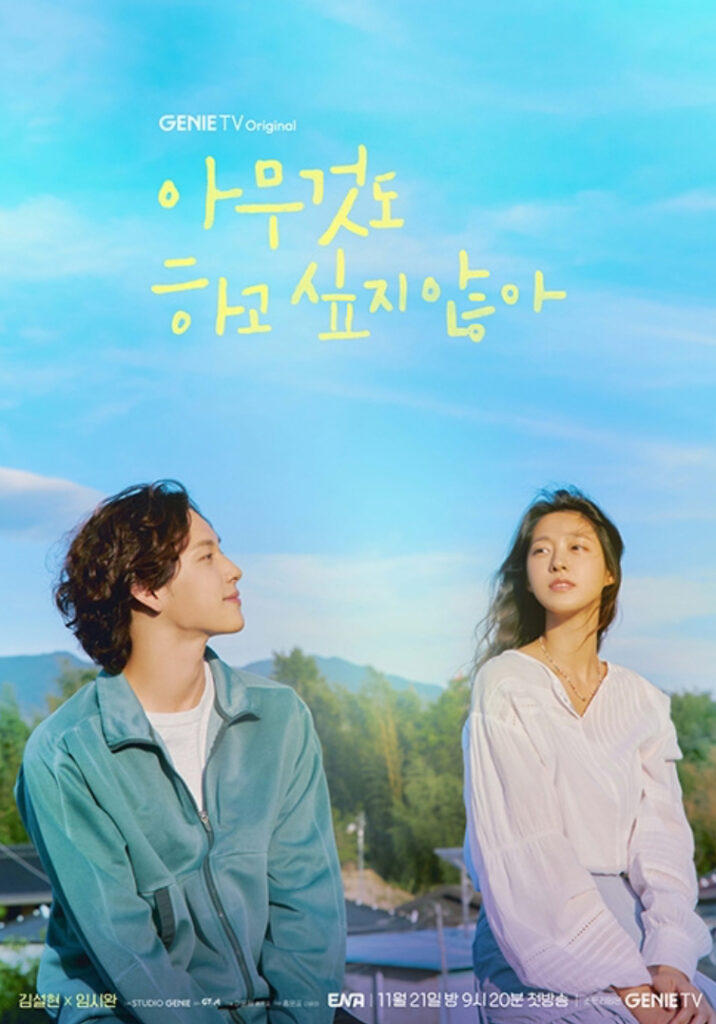Summer Strike is one of my comfort dramas that I like to rewatch as I prepare to say goodbye to summer. The main female character’s name is Yeo-reum, which means summer in Korean. Yeo-reum is one of my all-time favorite characters. I love watching her journey of becoming a better friend to herself. It reminds me to check in on my relationship with myself. Am I being true to who I am? Am I being kind to myself? Am I listening to my emotions? Am I taking care of my needs? In the first episode, we meet Yeo-reum. She is a very agreeable person, always putting the needs of others before her own. She seems to have low self-esteem and self-worth. She also seems unhappy and stuck in her life. If you have ever betrayed yourself, you will probably see yourself in Yeo-reum. One day, after a frustrating start to her morning, Yeo-reum is going to be late for work, and she is texting her boss in panic, but she doesn’t send the text. She looks up from her phone and sees the signs of spring—the cherry blossoms are blooming—and we see her genuine smile for the first time. It’s as if nature is calling to her heart, signalling that she is ready to let go of her old life and embark on a new journey, and Yeo-reum accepts this message. She decides not to go to work and takes the train in the opposite direction. As she rides the train, she thinks, “perhaps that’s what life is. If I go in the opposite direction as everyone else, perhaps life will be more relaxing, quiet, and peaceful.” I love what Yeo-reum says. It speaks to my heart.

Yeo-reum then makes a brave decision to quit her job and move from Seoul to the countryside, to finally rest. She says, “I’ve been living in a daze. I tried so hard not to fall behind and not to be mistreated, as if my life depended on it. But looking back, the one who’s been mistreating me the most was myself.” For Yeo-reum to experience spring in her life, she had to break, and only then was she able to lift the blinds covering her heart and begin to see her life with new eyes. This is the life/death/life cycle that Clarissa Pinkola Estés often writes about. Spring comes after a harsh, cold, dark winter. In our internal world, we also experience a sort of death—when we are faced with hardships and struggles, pain and suffering—that death is also a door to new life. There is a new story waiting to be written—one that is more hopeful, encouraging, and empowering. Yeo-reum decides to live a life she will not regret. She takes only what is essential and decides to live off her savings for one year. She stops worrying about what other people think—that she is unemployed or that she is wasting her time. Clarissa Pinkola Estés says in her audiobook The Late Bloomer, “if you worry about wearing the right clothes and looking the right way—conforming exactly the way it’s always been—it stops us from coming to the truth and the actual creativity of what can be told by the human heart, the soul, the spirit, the body. It forestalls our blooming by believing that protecting ourselves from the truth of who we are will somehow make people not find us unworthy or judge us harshly. Be as you are.”
I loved watching Yeo-reum bloom. As I prepare to welcome fall, I hope to carry the lessons of spring and not forget the joyous memories I made in the summer.
May you find the courage to reinvent your life over and over.
May you live with ease. May you live with ease. May you live with ease.
May you be a friend to yourself.